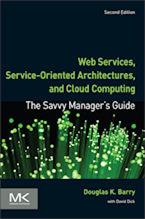Cloud Computing Governance
This is a brief summary of some Cloud Computing governance issues
Technical Issues
Determine how the Cloud Provider::
- Supports change management
- Provides for high-availability
- Provides for redundancy and failover (if any)
- Provides for security related to the Internet
- Provides for physical security
Legal Issues
It is important to determine what needs to be in a contract with your Cloud provider. Things to consider:
- Service standards to be maintained
- Retention of rights to your data
- Legal jurisdiction where the data center is located
- Privacy laws where the data center is located
- Liability of data breaches
- Policies and procedures related to providing digital forensics data in the event of any legal dispute, cyber attack, or data breach.
- Notification of changes when they occur at the data center
- Disaster recovery
- Remedies for various possible problems
- Details for what occurs at the beginning and end of the contract period
Business Issues
Your business relationship with a Cloud provider should involve:
- The Cloud provider's reputation
- Financial stability of the Cloud provider
- The length of time the Cloud provider has been in business
- Management practices for the data center
Context for Cloud Computing Governance
Related Articles for Cloud Computing Governance
Author
Douglas K Barry
Principal
You may use this material for your work or classes. Reprint Policy. Be sure to check the menu at the left for other articles available on this site.
The Savvy Manager's Guide
Douglas K Barry is also the author of a book that explains Web Services, service-oriented architecture, and Cloud Computing in an easy-to-understand, non-technical manner.
Web Services, Service-Oriented Architectures, and Cloud Computing: The Savvy Manager's Guide (Second Edition)
by Douglas K Barry with David Dick
This is a guide for the savvy manager who wants to capitalize on the wave of change that is occurring with Web Services, service-oriented architecture, and—more recently—Cloud Computing. The changes wrought by these technologies will require both a basic grasp of the technologies and an effective way to deal with how these changes will affect the people who build and use the systems in our organizations. This book covers both issues. Managers at all levels of all organizations must be aware of both the changes that we are now seeing and ways to deal with issues created by those changes.

